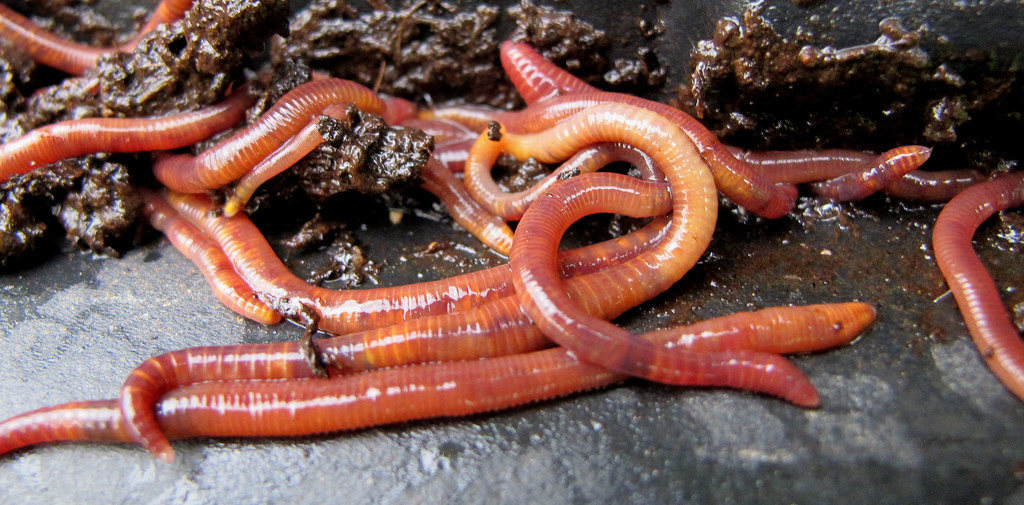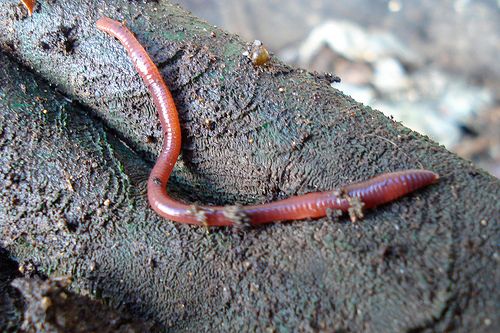Discover the Perks of Shopping at Red Wiggler Express for Fishing Needs
The Unbelievable Globe of Red Wigglers: Boost Your Soil Fertility Today
The function of red wigglers, or Eisenia fetida, in improving soil fertility is a subject of expanding passion amongst garden enthusiasts and agricultural specialists. These little yet effective organisms transform natural waste right into valuable worm spreadings, substantially boosting soil wellness and advertising lasting methods. As we check out the benefits of vermicomposting and the sensible steps to create an effective worm container, the prospective impact of these worms on your gardening success ends up being significantly noticeable. Understanding the nuances of their treatment and application might just change the method you approach soil monitoring. What insights can be gotten from integrating these exceptional animals right into your horticulture routine?
Recognizing Red Wigglers
Red wigglers, clinically called Eisenia fetida, are a species of earthworm that play a crucial role in enhancing dirt fertility. These worms grow in organic-rich settings, such as compost heap and rotting plant material, where they take in organic waste and excrete nutrient-dense castings. Their one-of-a-kind makeup, including a segmented body and a clitellum, allows them to duplicate swiftly and effectively procedure huge quantities of raw material.

The eco-friendly relevance of red wigglers prolongs beyond plain waste handling; they add to the dirt food internet, cultivating a diverse area of microbes that better improve soil health. Understanding the biology and habits of red wigglers is vital for harnessing their complete potential in sustainable farming and horticulture techniques.
Advantages of Vermicomposting
(Red Wiggler Express)Using the power of red wigglers with vermicomposting offers various advantages that substantially boost dirt wellness and fertility. One of the key benefits is the manufacturing of nutrient-rich worm spreadings, which are a superb natural fertilizer. Red Wiggler Express. These spreadings have important nutrients like nitrogen, phosphorus, and potassium, promoting durable plant growth and enhancing plant returns
The existence of worm spreadings boosts soil texture, allowing for far better water retention and drainage. Red wigglers help damage down natural matter, speeding up disintegration and reusing nutrients back into the soil.
Vermicomposting additionally cultivates microbial activity, which is vital for a healthy soil ecosystem. Beneficial bacteria prosper in the presence of worm spreadings, assisting in the break down of organic products and boosting nutrient availability to plants.
Last but not least, vermicomposting acts as an efficient waste monitoring remedy, reducing landfill waste by recycling kitchen area scraps and other organic products. This not only contributes to environmental sustainability but additionally promotes a visit our website circular economic climate within gardening and agriculture.
How to Set Up a Worm Bin
Setting up a worm bin is a simple procedure that can significantly improve your composting initiatives. Begin by picking an appropriate container, which can vary from a commercially available worm container to a simple plastic or wood box (Red Wiggler Express). Make sure the container has sufficient air flow; small openings in the lid and sides will assist in air circulation
Next, develop a bedding layer to offer a comfy environment for the red wigglers. This can be made from shredded paper, cardboard, or coconut coir, dampened to a damp, sponge-like uniformity. Load the bin to around one-third full with this bed linen product.
As soon as the bed linen is prepared, it's time to introduce the worms. Red wigglers prosper in organic waste, so place them gently onto the bed linen. Cover the worms with a light layer of extra bed linen to assist them acclimate.
Feeding Your Red Wigglers
Giving the appropriate food for your red wigglers is important for their wellness and the effectiveness of your composting system. Red wigglers prosper on a varied diet plan, largely including natural materials such as fruit and veggie scraps, coffee premises, and shredded paper. These materials not just give necessary nutrients however likewise add to the microbial task in the worm container, which is essential for the worms' food digestion.
It is necessary to avoid particular foods, such as dairy products, oils, and meats, as these can bring in bugs and create undesirable odors. Furthermore, citrus peels and overly spicy foods must be restricted due to their possible to hurt the worms. A balanced approach to feeding includes checking the amount of food presented to the container, guaranteeing that it is eaten within a reasonable amount of time to stop excess waste buildup.
To advertise ideal food digestion, it is helpful to cut or shred larger food items prior to including them to the bin. This technique boosts the surface location for microbial activity, promoting quicker decay and boosting the overall performance of your composting system. Consistently observing the worms' feeding practices will certainly help you adjust their diet regimen as needed.
Making Use Of Worm Spreadings in Your Garden

(Lake Hickory Bait)Incorporating worm spreadings right into your yard can be achieved by blending them into the soil or using them as a top dressing. The slow-release nature of these castings makes sure that nutrients are readily available to plants over an extended period, lowering the demand for synthetic fertilizers. Additionally, worm spreadings consist of beneficial microorganisms that advertise healthy and balanced dirt environments, boosting the overall durability of your yard.
To make best use of the advantages, aim to apply around one component worm castings to three components dirt in your planting beds. Routine applications can result in enhanced plant returns and healthier plants, making worm spreadings a vital resource for both amateur and skilled garden enthusiasts alike. By utilizing this all-natural modification, you can grow a successful garden while adding to lasting gardening methods.
Conclusion
To conclude, red wigglers exemplify the vital role of vermicomposting in enhancing dirt fertility. Their capability to transform natural waste right into nutrient-rich castings significantly enriches soil framework and supports microbial diversity. Developing a vermicomposting system not only advertises sustainable gardening practices yet additionally contributes to environmental wellness. By leveraging the benefits of these exceptional organisms, garden enthusiasts can cultivate more productive and durable ecosystems, inevitably promoting a much more lasting strategy to farming and cultivation.